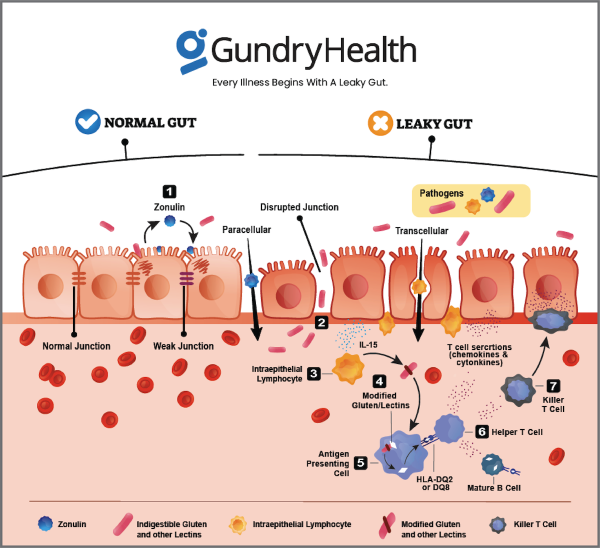Decode Your Stomach Gurgling: Possible Digestive Issues and How to Address Them
What Does Constant Stomach Gurgling Mean? When to See a Doctor
Experiencing occasional stomach gurgling is common and can be attributed to several benign causes, such as eating quickly or hunger. However, if the symptom persists, it may indicate an underlying health issue that requires medical attention.
Here’s what you need to know about the possible causes of constant stomach gurgling and when to seek medical advice.
Signs Your Stomach Gurgling Could Mean Something More Serious
Experiencing stomach gurgling occasionally after a few hours of not eating may not be concerning, but when accompanied by additional symptoms such as diarrhea, constipation, excess gas, or foul-smelling stool, it could signal a more severe issue. In such cases, it is recommended to pay extra attention and consult a doctor if the symptoms persist or worsen. While mild symptoms can be monitored for a week or two, severe symptoms such as blood in the stool or severe pain require medical attention within 24 to 48 hours.
How to Get the Right Diagnosis for Stomach Gurgling
When visiting a doctor for gastrointestinal symptoms such as stomach gurgling, it is crucial to provide detailed information about your symptoms. Prepare to answer the following questions:
- How long have you been experiencing these symptoms?
- How often do you experience them?
- Do certain foods or activities trigger them?
- Do you experience stomach gurgling at a specific time of day?
- Have there been changes in your stool’s color, odor, or consistency?
- How often do you have bowel movements?
- Is there blood in your stool or on the toilet paper?
- Do you experience pain or cramping?
- Have you been in contact with someone who’s been ill recently?
- Have you eaten any food that tastes bad, spoiled, or off?
- Have you traveled outside the country before your symptoms began?
- Do you have pets or work with animals?
- Have you noticed anything that makes your symptoms better or worse?
Understanding the Causes of Stomach Gurgling: Evaluations and Specialized Testing
Stomach gurgling can be an uncomfortable symptom that many people suffer from. It is important to get a thorough evaluation from a healthcare provider, which may include listening to bowel sounds, pressing on the belly to assess for tenderness or lumps, and basic lab tests. However, specialized testing, such as stool tests for parasites, yeast, bacteria, malabsorption, poor digestion, and gut dysbiosis, or breath tests for small intestinal bacterial overgrowth (SIBO), may be necessary to identify the underlying cause of the gurgling. Unfortunately, these tests are often overlooked by conventional doctors, leaving many people with unresolved digestive issues. Virtual visits may also be an option for mild symptoms, where patients can assist in the evaluation process by pressing on their own belly while on camera.
Exploring the Various Causes of Stomach Gurgling and How to Address Them
Stomach gurgling is a common sensation that can be caused by hunger, poor digestion due to not being in a parasympathetic state while eating, or several underlying medical conditions. It is essential to identify the root cause to determine the appropriate treatment. Here are some of the conditions that can cause stomach gurgling:
- Infections, such as bacteria, yeast, or parasites
- Small intestinal bacterial overgrowth (SIBO)
- Food intolerances, like lactose intolerance
- Celiac disease
- Inflammatory bowel disease (IBD), including Crohn’s disease and ulcerative colitis
- Medication side effects
- Congenital disorders, such as Hirschsprung disease
Stomach gurgling occurs when muscle contractions of the intestinal wall, liquid, and gas are present in the intestines. The severity and frequency of gurgling depend on the individual’s underlying health condition. To address stomach gurgling, learning to identify and respond to hunger cues and practicing deep breathing before meals can be helpful. Seeking a medical evaluation and specialized testing, such as stool tests or breath tests, may also be necessary to identify and treat the underlying cause.
How to stop stomach gurgling: Tips and tricks for relief
Stomach gurgling can be an uncomfortable and embarrassing symptom, but it can often be managed with some simple lifestyle changes. While treatment will depend on the underlying cause, there are some general tips and tricks you can try to reduce stomach gurgling and improve your digestion.
Here are some suggestions:
- Eat small, healthy meals or snacks to curb the sensation of hunger or avoid foods that trigger stomach gurgling, such as dairy or beans.
- Cooked veggies and bone broth can be better options than raw veggies, while herbal teas are more beneficial than coffee for supporting healthy digestion.
- Sip water slowly throughout the day and keep meals about four hours apart.
- Limit sugar, alcohol, and acidic foods like citrus.
- Take four to five deep belly breaths right before your meal to reach a “rest and digest” state, and eat more mindfully by chewing your food slowly, avoiding distractions, and perhaps playing soft, relaxing music.
By incorporating these strategies into your routine, you may find relief from stomach gurgling and other digestive symptoms while you work with a healthcare provider to identify and address the root cause. Remember, a root-cause approach to your health can often help resolve persistent symptoms, so don’t hesitate to seek professional help if needed.







